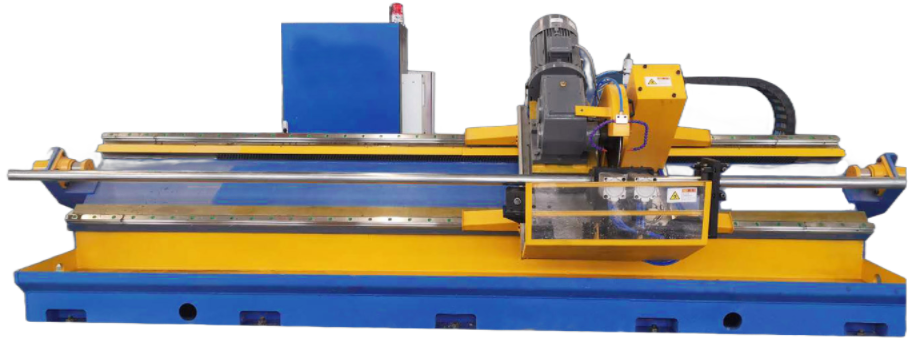Precision Round Downpipe Roll Forming Equipment for Efficient Metal Fabrication
The Role of Round Downpipe Roll Forming Machines in Modern Manufacturing
In the ever-evolving landscape of modern manufacturing, efficiency and precision are critical. One of the remarkable innovations that have gained traction in recent years is the round downpipe roll forming machine. Specifically designed for the fabrication of round downpipes, these machines play a vital role in producing durable and high-quality components for various industries, including construction, automotive, and plumbing.
What is a Round Downpipe Roll Forming Machine?
A round downpipe roll forming machine is an automated piece of equipment used to produce round downpipes, typically found in rainwater drainage systems. The machine takes flat metal sheets, often made of steel or aluminum, and gradually shapes them into a round profile through a series of rollers. It can produce downpipes of various diameters and thicknesses through precise adjustments, ensuring versatility in production.
The Production Process
The process begins with loading the metal sheets into the machine. The sheets pass through a series of forming rollers, which gradually bend and shape the flat material into the desired round shape. This process not only creates a strong and reliable product but also ensures consistency in the dimensions and finish quality. Advanced roll forming machines are equipped with computer numerical control (CNC) technology, allowing for precise control over the dimensions and reducing the likelihood of errors.
Once the pipe is formed, the machine may also incorporate additional features, such as cutting the pipe to the required length, drilling holes for fittings, or applying coatings to enhance corrosion resistance. This integration of multiple functions into a single machine streamlines production, reduces labor costs, and minimizes waste.
Advantages of Using Round Downpipe Roll Forming Machines
round downpipe roll forming machine

1. Efficiency and Speed These machines are capable of producing large quantities of downpipes in a short amount of time. The automation of the roll forming process allows for continuous operation, significantly increasing output compared to traditional fabrication methods.
2. Cost-Effectiveness By producing components in bulk, manufacturers can benefit from economies of scale. The reduction in labor costs, combined with lower material waste and minimized machining processes, translates to significant cost savings.
3. Quality and Consistency The precision of roll forming machines ensures that all produced downpipes meet the specified standards, reducing the risk of defects. High-quality outputs also contribute to a good reputation for manufacturers, making them competitive in the market.
4. Versatility Modern roll forming machines can be easily adjusted to accommodate different sizes and profiles, making them suitable for various applications beyond just downpipes. This adaptability allows manufacturers to diversify their product offerings without investing in multiple machines.
5. Environmental Benefits Efficient use of materials and the reduction of waste associated with roll forming processes have positive implications for environmental sustainability. Manufacturers can also choose environmentally friendly materials in the production of their downpipes.
Conclusion
In conclusion, round downpipe roll forming machines have transformed the way manufacturers produce essential components for construction and plumbing. As industry demands continue to evolve, these machines offer a combination of efficiency, cost-effectiveness, and versatility that is hard to match. With ongoing advancements in technology and manufacturing processes, the role of round downpipe roll forming machines is sure to expand, meeting the needs of an increasingly competitive market. Manufacturers looking to enhance their production capabilities would do well to consider investing in this vital technology, ensuring they remain at the forefront of the industry.
-
High Frequency Straight Seam Welded Pipe Production Line-BzZhou Xinghua Machinery Equipment Manufacturing Co., LTD.|line pipe steel&welded gas pipeNewsJul.30,2025
-
High Frequency Straight Seam Welded Pipe Production Line-BzZhou Xinghua Machinery Equipment Manufacturing Co., LTD.|High Precision&Automated SolutionsNewsJul.30,2025
-
High Frequency Straight Seam Welded Pipe Production Line - BzZhou Xinghua Machinery Equipment Manufacturing Co., Ltd.NewsJul.30,2025
-
High Frequency Straight Seam Welded Pipe Production Line-BzZhou Xinghua Machinery Equipment Manufacturing Co., LTD.|Precision Welding, High EfficiencyNewsJul.30,2025
-
High Frequency Straight Seam Welded Pipe Production Line|BzZhou Xinghua|Precision Welding&EfficiencyNewsJul.30,2025
-
High Frequency Straight Seam Welded Pipe Production Line - BzZhou Xinghua|Precision Engineering&EfficiencyNewsJul.30,2025


